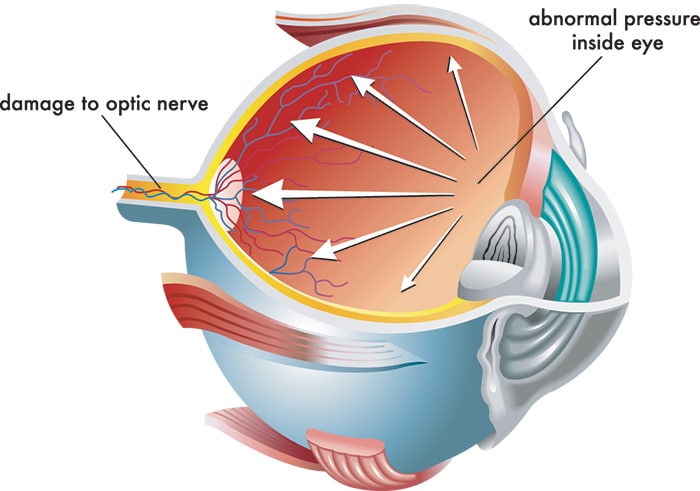Glaucoma

Glaucoma is an eye condition that can cause permanent and irreversible vision loss if left untreated. At Newton Wellesley Eye Associates, we offer a range of advanced treatments and personalized care to help manage and treat glaucoma.
What is Glaucoma?

Glaucoma is an eye condition that can affect your vision and, if left untreated, lead to permanent vision loss. It occurs when there is damage to the optic nerve, which connects your eye to your brain. The most common cause of this damage is high pressure inside the eye, known as intraocular pressure. Think of your eye as a small balloon filled with fluid. In a healthy eye, the fluid flows in and out, maintaining normal pressure. However, with glaucoma, something disrupts this balance, causing the pressure to build up.
Over time, the increased pressure damages the optic nerve fibers, leading to vision problems. Unfortunately, glaucoma usually develops slowly and painlessly, often without noticeable symptoms until it’s in its advanced stages. That’s why regular eye exams are crucial, especially if you’re over forty or have a family history of glaucoma. Early detection and treatment can help slow down or prevent further vision loss.
What Are The Most Common Symptoms of Glaucoma?
In the early stages, glaucoma often doesn’t cause noticeable symptoms, which is why it’s often called the “silent thief of sight.” However, as the condition progresses, certain signs may start to appear.
Here are some of the most common symptoms to watch out for:
What Types of Glaucoma Treatments Are Available?
There are several treatment options available for glaucoma, and the choice of treatment depends on the severity of the condition and the specific needs of the patient. Here are some commonly used treatments at Newton Wellesley Eye Associates:
It’s important to note that the choice of treatment depends on various factors and should be determined by your eye doctor at Newton Wellesley Eye Associates.
They will evaluate the specific condition and recommend the most suitable treatment option for the individual patient. Regular monitoring and follow-up visits are also essential to ensure the effectiveness of the chosen treatment and maintain good eye health.




